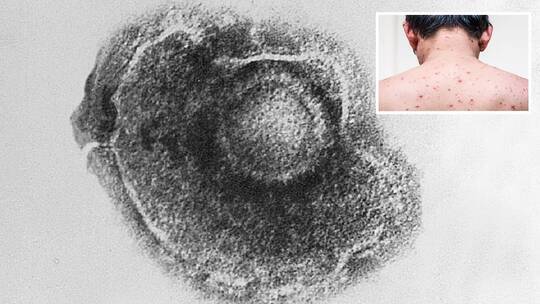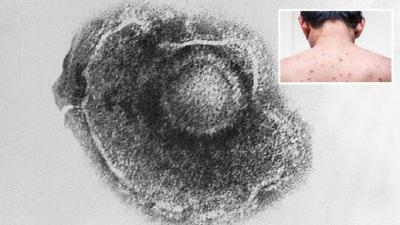Diseases like influenza have virtually disappeared in Australia during the "COVID-19" pandemic, but one highly contagious virus has remained stable, despite strict restrictions and social distancing. According to a report published by "ABC" on Tuesday, over 10,000 cases of the varicella-zoster virus, which causes chickenpox, were recorded in Queensland last year, with similar levels observed in 2020. The report noted that the virus has a reproductive number (R value) of up to 13, meaning that an infected person can transmit the virus to as many as 13 other people, depending on immunity levels.
Queensland Health, a group of services aimed at ensuring good health and well-being for all Queensland residents, stated that the virus can easily spread among those who have not contracted the disease or have not been vaccinated against it. They believe that the number of chickenpox cases remains high for several reasons, including young children still learning basic hygiene practices.
Other diseases in Australia have declined, with influenza cases dropping from 6,047 in 2020 to 296 last year. Robert Boy, an infectious disease expert at the University of Sydney, explained that the numbers demonstrate how transmissible chickenpox is. He stated, "The effective reproduction number can be between about 3 and 13... This means that one person can, on average, infect at least 3 others and potentially up to 13. Therefore, the social and physical distancing efforts we undertake become ineffective against a highly contagious virus compared to COVID-19."
Chickenpox spreads through close contact, either via airborne transmission or direct contact with fluids from the resulting blisters. Claire Walker, a general practitioner and secretary of the Queensland Rural Doctors Association, emphasized the importance for people, especially pregnant women, to check their vaccination status against chickenpox. She added, "It has been around for a long time and will likely be with us for a long time to come; it's not a disease we will probably eliminate... For older children or teenagers and young adults, there are some who have not had chickenpox or received the vaccine when they were younger. I always recommend just seeing your general practitioner, as they can look at your records."
Claire Walker urged people to ensure their vaccinations are current, warning that the disease can have severe consequences for those without immunity. She stated, "In adults, they can suffer from encephalitis, they can get a severe pneumonia, and it can be fatal." When a person recovers from chickenpox, the virus remains dormant in the nerves near the spine, and as the person ages, it can re-emerge as debilitating shingles. Under Australia’s National Immunisation Program, children from 18 months can receive the measles, mumps, rubella, and varicella vaccines for free, which provides 80 to 85 percent protection against chickenpox.




